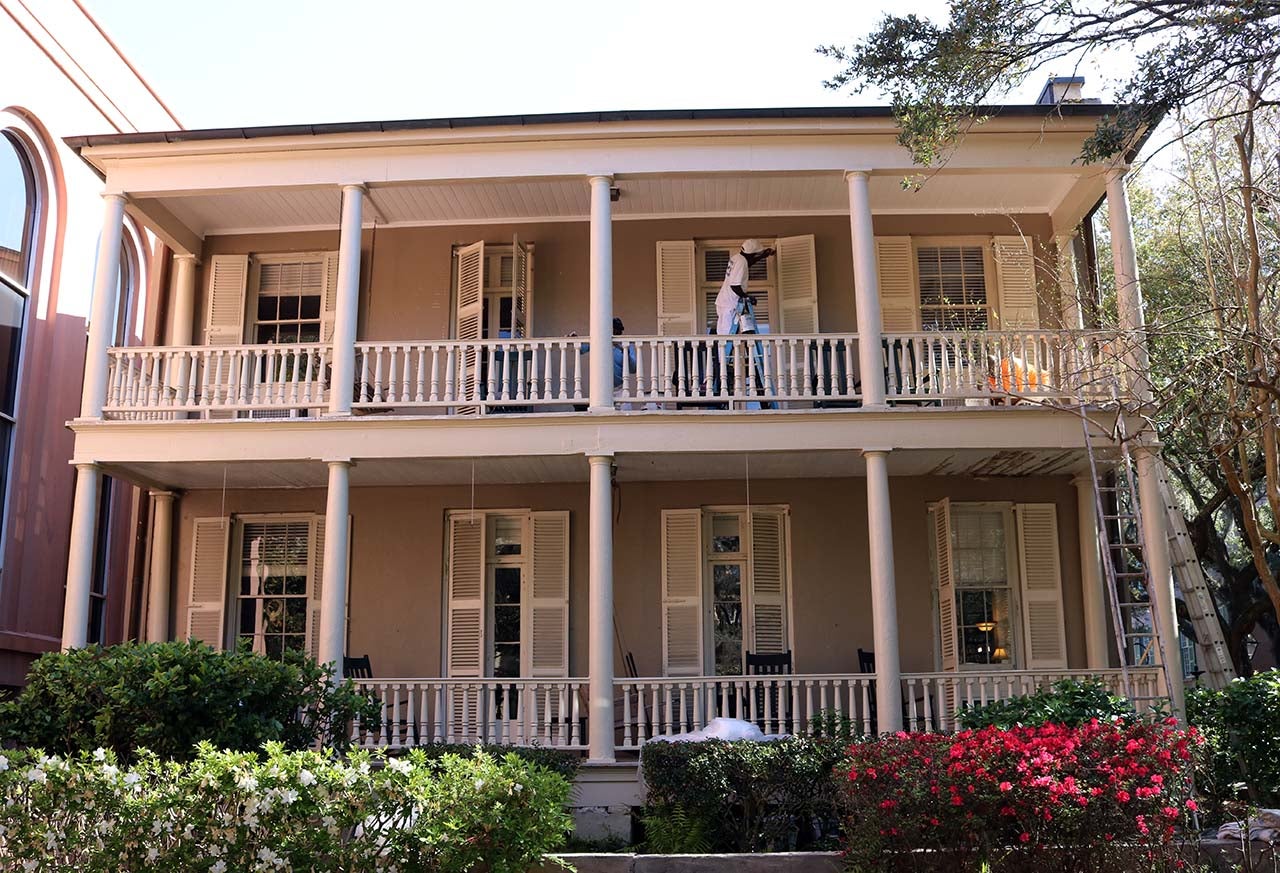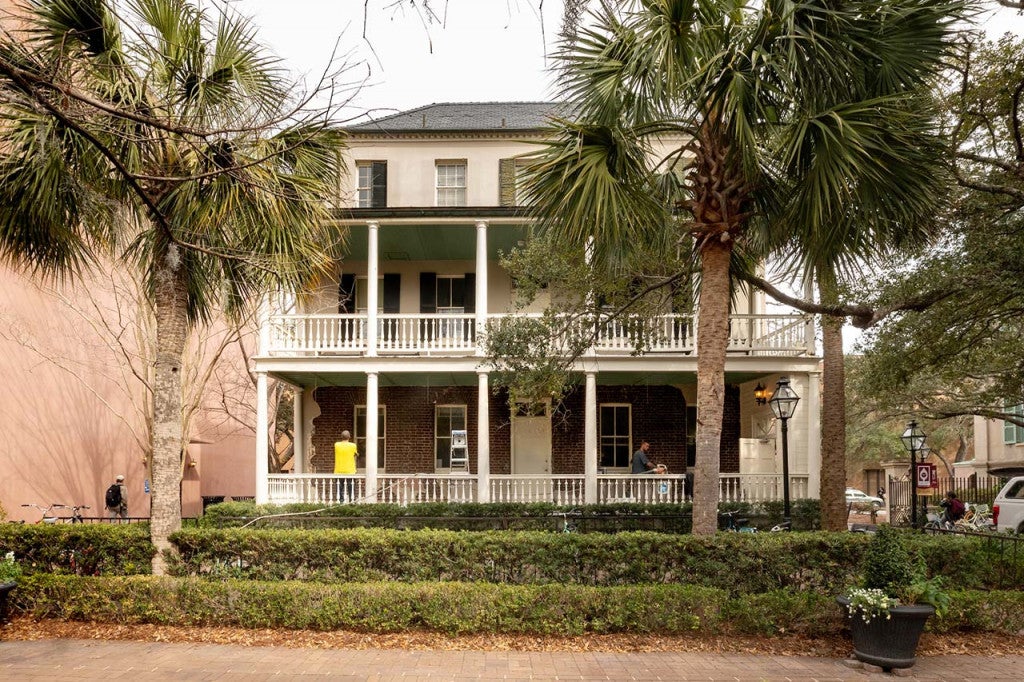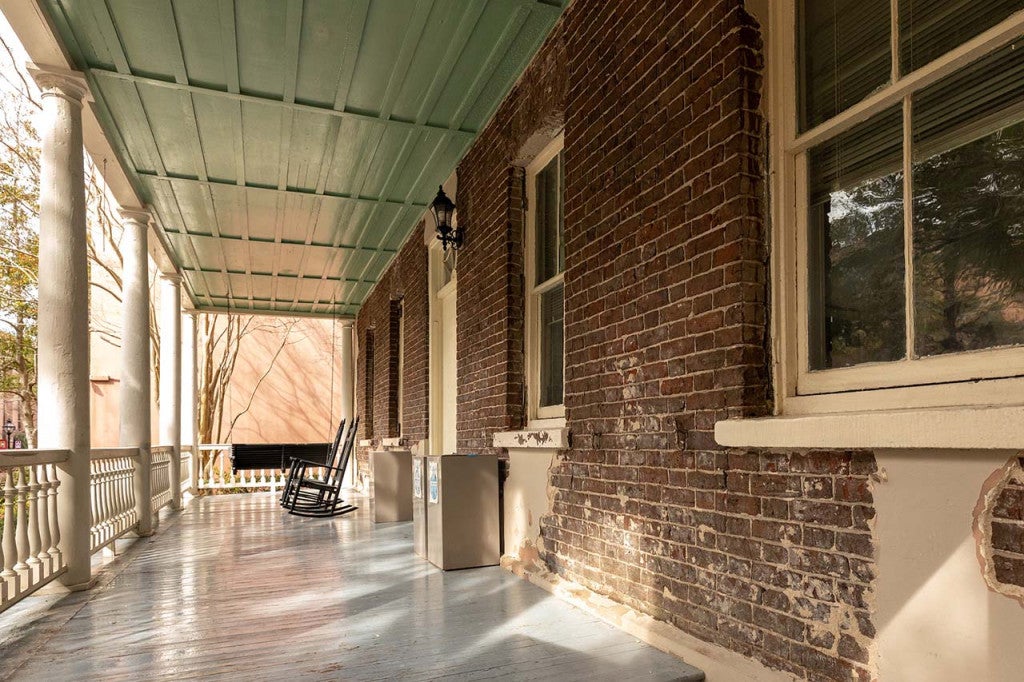In recognition of its 250th anniversary, the College of Charleston has undertaken $3 million in facilities improvements, with many projects targeting historic structures on campus.
John Morris, vice president of Facilities Management, says about $1.3 million will go toward maintenance and preservation of some of the College’s historic buildings, including exterior painting, rail and porch repairs, new siding and windows, and shutter repairs. Another $700,000 will fund grounds improvements such as new landscaping. And $1 million has been earmarked to fund mechanical electrical system upgrades at various buildings, including the Thaddeus Street Jr. Education Center and the Robert Scott Small Building.
“It’s an opportunity to refresh, maintain and elevate some of our buildings and historic structures as well as update and improve some of the College’s landscaping,” says Morris.
Facilities Management staff is continuing to work on these projects while students and faculty are off campus due to the coronavirus pandemic. Morris says all Facilities Management staff are provided personal protective equipment and practicing social distancing while working on campus.
Historic buildings that are part of the projects include Department of Psychology faculty offices at 55, 57 and 59 Coming St.; Department of Communication and women’s and gender studies faculty offices on College Way; math and science faculty offices on Green Way; and faculty offices for English, philosophy and Jewish studies on Glebe Street.
The original brick work for the mathematics faculty office building at 4 Green Way was exposed during a project to re-stucco the home, which was built in approximately 1817. (Photos by Heather Moran)
With 90 historic homes and buildings on campus constructed between 1770 and 1940, the College has a responsibility to preserve and maintain the structural integrity of these buildings for the next generation of students. Morris says that’s why the institution has launched the Campus Preservation Fund as part of the College’s Drive for the 250th initiative, which aims to engage alumni, donors and friends in the life of the College during this milestone year.
“The cost of maintaining these historic buildings can be challenging because we have to maintain them to the historic nature the [City of Charleston] Board of Architectural Review requires,” says Morris. “There are very specific preservation requirements that dictate the materials and aesthetics of everything from shutters to handrails. Most things have to be custom made.”
Katie West, project manager for Facilities Management, says overseeing the maintenance of the College’s historic buildings, many of which are well over 120 years old, is a challenge she welcomes.

Philosophy faculty offices at 14 Glebe St. undergo exterior work including paint. The 2 1/2 story brick single house was constructed in the mid-1800s.
“My background is in both architecture and historic preservation, so I really enjoy being able to manage these types of projects,” says West. “The historic buildings at the College are probably the most recognized feature of our campus and are what makes it so special. I am excited to be able to bring some beauty back to them as well as take care of structural issues, which makes the buildings more comfortable for our students, faculty and staff.”
Improvement projects aren’t limited to historic homes, though. The College is working with landscape architectural firm Outdoor Spatial Design to refresh the College’s landscape designs across campus including along Green Way and the Cistern Yard.
“We tend to focus on each individual project, such as the small garden we put in next to Marty’s Place, but as far as somebody taking the time to look at the overall landscape plan, this is really the first time that I’m aware of it being done,” says Cristi Schultz, director of architecture and engineering.
The goal, says Morris, is to create new garden features in key areas on campus as well as identify areas to place additional seating and shade structures similar to the seating available in Barnett Garden.
“It’s a great opportunity to look at it as a whole,” says Morris.
Featured image: Home to the Honors College Office of the Dean, the Aiken House was built in 1839 by William Aiken Jr., who served as governor of South Carolina from 1844-1846.






